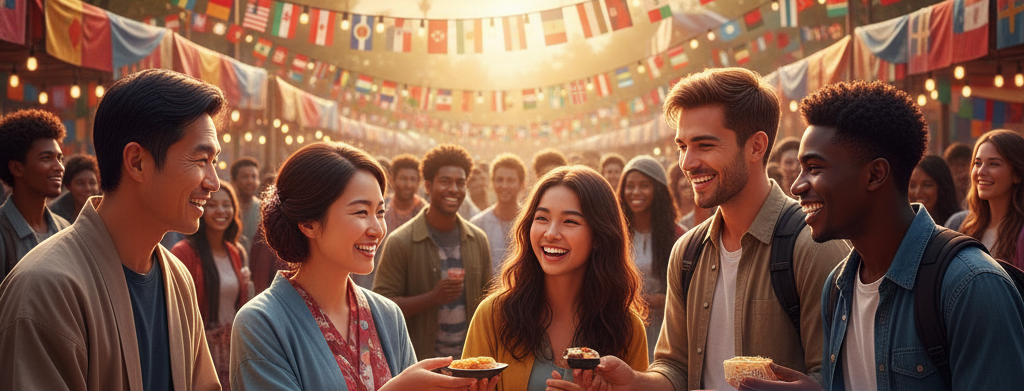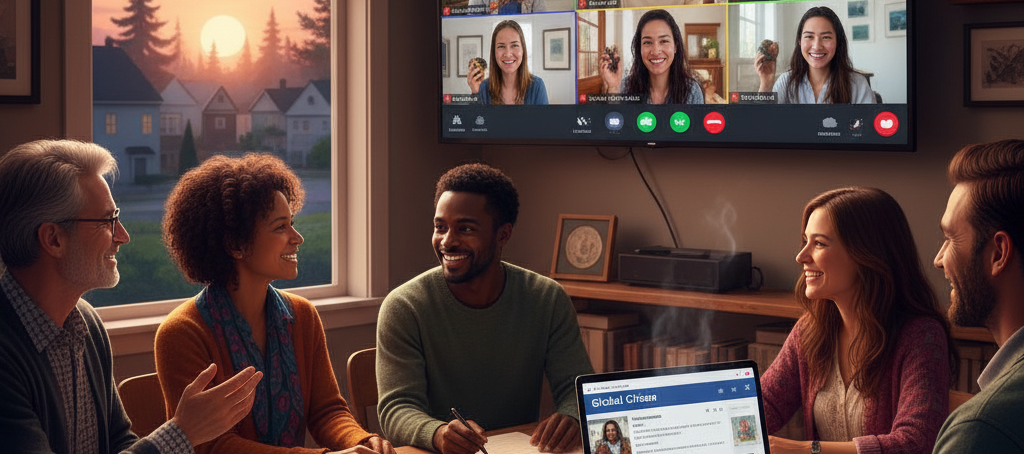Citizen diplomacy, the engagement of individuals in fostering cross-cultural understanding and collaboration, is transforming the world view landscape. Unlike traditional diplomacy, which relies on state actors, citizen diplomacy empowers everyday people—through travel, cultural exchanges, or digital platforms—to build bridges between nations. By 2025, over 1 billion people participate in cross-border cultural programs annually, per UNESCO, amplifying mutual understanding in a polarized world. While offering hope for global unity, citizen diplomacy faces challenges in accessibility, impact measurement, and navigating geopolitical tensions, redefining how we perceive and shape international relations.

The Foundations and Mechanics of Citizen Diplomacy
Citizen diplomacy gained momentum in the 20th century, with programs like the Peace Corps and student exchanges fostering grassroots connections. Today, digital platforms like Couchsurfing and X enable virtual exchanges, connecting 500 million users globally, per Statista. Initiatives range from hosting international visitors to volunteering abroad, with organizations like AFS Intercultural Programs facilitating 10,000 exchanges yearly. Technology amplifies reach—Zoom-based cultural workshops grew 200% since 2020, per a 2024 OECD report.
This approach promotes empathy and collaboration. For example, homestays in Japan build lifelong bonds, while online forums unite activists on issues like climate change. However, impact is hard to quantify, and cultural misunderstandings can arise without proper facilitation.
Opportunities for Global Connection
For individuals, citizen diplomacy fosters personal growth and cultural fluency. Travelers engaging with locals, like through Workaway’s 50,000 annual volunteer placements, gain nuanced world views, with 80% reporting greater tolerance, per a 2024 University of Oxford study. Digital platforms enable advocacy—global petitions on Change.org influence policy, as seen in 2023’s plastic ban campaigns. These efforts bridge divides, with 60% of participants feeling more connected to global issues.
Communities and organizations benefit too. Sister city programs, like Kyoto-Seattle, boost local economies by 5% through tourism and trade, per Sister Cities International. NGOs leverage citizen diplomacy for peacebuilding—Rotary International’s 1.4 million members fund projects like clean water initiatives in Africa. Businesses gain from cross-cultural networks, with 30% of startups citing international partnerships as growth drivers, per a 2024 McKinsey report.

Challenges and Ethical Considerations
Citizen diplomacy faces barriers. Accessibility is uneven—70% of exchange program participants come from high-income nations, per UNESCO, excluding marginalized groups. Language barriers and cultural missteps risk perpetuating stereotypes, with 25% of exchanges reporting conflicts, per a 2023 AFS study. Geopolitical tensions complicate efforts—citizen initiatives in conflict zones like Ukraine face safety risks, and digital platforms can amplify misinformation, as seen in 2024’s polarized X debates.
Ethical concerns include exploitation risks in voluntourism, where poorly managed programs disrupt local economies. Measuring impact is tricky—qualitative benefits like empathy are hard to quantify. Digital divides limit participation, with 37% of the global population offline, per ITU, hindering inclusive engagement.
Strategies for Success and Cultural Impact
Individuals can succeed by preparing culturally, using resources like Duolingo or intercultural guides, and choosing reputable programs. Organizations should prioritize inclusivity, offering scholarships to underrepresented groups, as AFS does for 20% of participants. Digital tools, like AI-driven translation apps, enhance accessibility, reducing language barriers by 40%. Staying informed via platforms like Foreign Affairs ensures alignment with global trends.
Culturally, citizen diplomacy inspires hope, celebrated in media like The Guardian’s global voices series and documentaries like The World Before Your Feet. AI-driven analytics, mapping cultural exchange impacts, refine programs. For world view enthusiasts, engaging with platforms like Global Citizen or supporting exchange initiatives fosters connection to this transformative movement.
Citizen diplomacy reshapes how we view the world, fostering unity through shared humanity. By addressing its challenges with inclusive and ethical strategies, individuals and organizations can build a more connected, empathetic global community.
This text was generated using a large language model, and select text has been reviewed and moderated for purposes such as readability.
